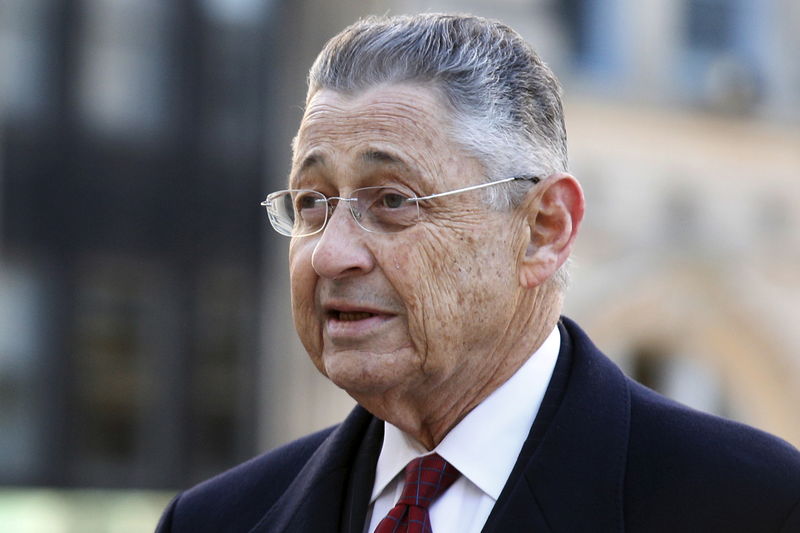Investing.com’s stocks of the week
By Nate Raymond and Joseph Ax
NEW YORK (Reuters) - Sheldon Silver, one of New York state's most powerful politicians for two decades, was convicted on Monday of abusing his office to collect as much as $4 million in illegal bribes and kickbacks.
A federal jury in Manhattan found Silver, 71, guilty of all seven counts he faced, including fraud, extortion and money laundering, following a three-week trial.
The verdict caps a stunning fall for Silver, a Democrat who as speaker of the New York State Assembly enjoyed immense political influence before his arrest in January.
It also represents a victory for Preet Bharara, the top federal prosecutor in Manhattan, who has brought criminal charges against several lawmakers in a broader probe into corruption in Albany, the state capital.
Among those legislators is former Senate Majority Leader Dean Skelos, a Republican, who is currently on trial for corruption.
As the leaders of New York's two legislative houses, Silver and Skelos comprised two-thirds of the "three men in a room," who together with the governor control important legislation under New York's governance system.
Both Silver and Skelos resigned their leadership posts after their arrests but kept their seats. Silver, who represented Manhattan's Lower East Side, will automatically lose his office after his conviction.
"Today, Sheldon Silver got justice, and at long last, so did the people of New York," said Bharara, who was in court to hear the verdict.
Hours after the verdict, Silver left the courthouse amid a throng of reporters, saying, "I'm disappointed right now," before leaving in a black car.
One of Silver's defense lawyers, Steven Molo, said they would file motions seeking to set aside the verdict.
Silver's lawyers had accused Bharara of overreaching by trying to criminalize the horse-trading that typifies Albany politics.
"With the allegations proven, it is time for the Legislature to take seriously the need for reform," New York Governor Andrew Cuomo said in a statement.
Prosecutors said Silver awarded $500,000 in secret state grant money to a cancer researcher, Robert Taub, who in turn referred asbestos patients to Silver's law firm. The firm then paid Silver millions of dollars in referral fees.
Silver was also charged with steering developers to another law firm in exchange for kickbacks and then supporting rent legislation favored by the developers.
Susan Lerner, executive director of Common Cause in New York, a good government group, said: "This jury is saying that self-dealing and back-scratching is not an acceptable way for a public servant to behave."
